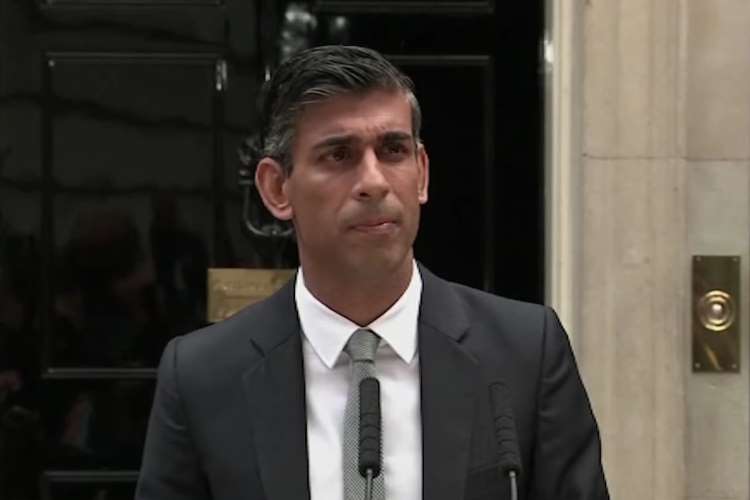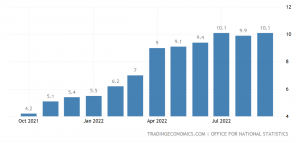
Rishi Sunak assumed office on Tuesday as Prime Minister of the United Kingdom. He faces an uphill task of pulling the economy out of one of UK’s worst economic crises since World War II. The 42-year-old was appointed by King Charles III after Liz Truss tendered her resignation as PM. UK’s first prime minister of colour will have to grapple with an economic crisis, troubled government finances, and industrial unrest triggered by decades-high inflation.
Sunak has inherited a weak economy that is slowly slipping into recession. The severe economic crisis predates Liz Truss’ short tenure as prime minister, but Truss did enough to accentuate the problems with a disastrous mini-budget funded by debt. Sunak can pickup a lesson or two from the disastrous policies that led to Truss’ downfall.
READ | G20 presidency: India must focus on climate action, malnutrition
Lessons for Rishi Sunak from Truss fiasco
Truss’ 44-day tenure as prime minister ended last Thursday. Sunak, former Chancellor of the Exchequer, had warned against tax cuts at a time when public debt had become unsustainably high because of steps taken to cushion the economic impact of Covid-19. The tax cuts in Truss’ mini-budget proved disastrous with the value of the pound falling to record lows. The UK is experiencing double-digit inflation which is hovering around 40-year highs. The Bank of England may announce another interest rate hike at its policy meeting next week.
UK annual inflation rate

Liz Truss fell victim to her delusions of Thatcherism that landed the UK economy in turmoil. The mini-budget had a major impact not just on her career, but also on the British economy. Truss went into history as the shortest-serving British prime minister. After the mini budget debacle, Truss was forced to replace Chancellor of the Exchequer Kwasi Kwarteng with Jeremy Hunt, who went on to roll back most of the proposals in her mini-budget.
What was the UK’s mini-budget?
The mini-budget had proposed £45 billion of unfunded tax cuts among other measures aimed at helping Britain’s sagging economy. The budget instead sent the pound tumbling to its lowest value against the dollar in several decades and set off panic in the markets. While it was intended to help Britain amid a tough time and included plans for major tax cuts, exemptions from a windfall tax for energy companies, and heavy government borrowing, it aggravated the existing issues for the economy. It triggered a domestic financial crisis and raised mortgage costs for millions.
Sunak had already warned about the consequences of tax cuts. There was a run on sterling and gilt market freefall that spooked global investors. The move also got on the nerves of the International Monetary Fund (IMF) which intervened with a stunning public rebuke. This was a rare public criticism of a leading global economy and the Washington-based fund even said that Kwasi Kwarteng’s mini-budget risked undermining the efforts of the Bank of England which had been trying to curb rampant inflation during the cost-of-living emergency.
READ | Surging dollar: Emerging markets struggle to weather economic impact
It was not like the announcement did not attract any criticism. Economists balked at the idea of £45 billion of unfunded tax cuts for the rich and said it may not catalyse economic growth and pay for itself in the way the government argued it would. Other than IMF, Goldman Sachs, Bank of America, and ratings agency Moody’s also weighed in and said that the move will spell doom for the already struggling economy.
Economies around the globe are currently under severe pressure as the effects of the ongoing war between Ukraine and Russia have trickled down to them. Europe, particularly, has found itself in a precarious position as energy prices skyrocket. Britain is also witnessing a 40-year high inflation, rising recession and higher borrowing costs, much like other advanced economies. Truss’ move was a big gamble at the wrong moment. Some even likened the present meltdown to the Suez Crisis of 1956, after which Britain’s power on the world stage was permanently diminished.
Truss came to power in September, proposing a radical economic agenda. She promised to kick start economic growth. History had lessons aplenty for the Truss government especially as the country has found itself in an economic whirlwind before as well. The 1931 devaluation crisis, the 1976 IMF crisis, the 1992 ERM crisis, the 2008 global financial crisis, all bore witness to how economic misjudgements later led to political upheavals.

